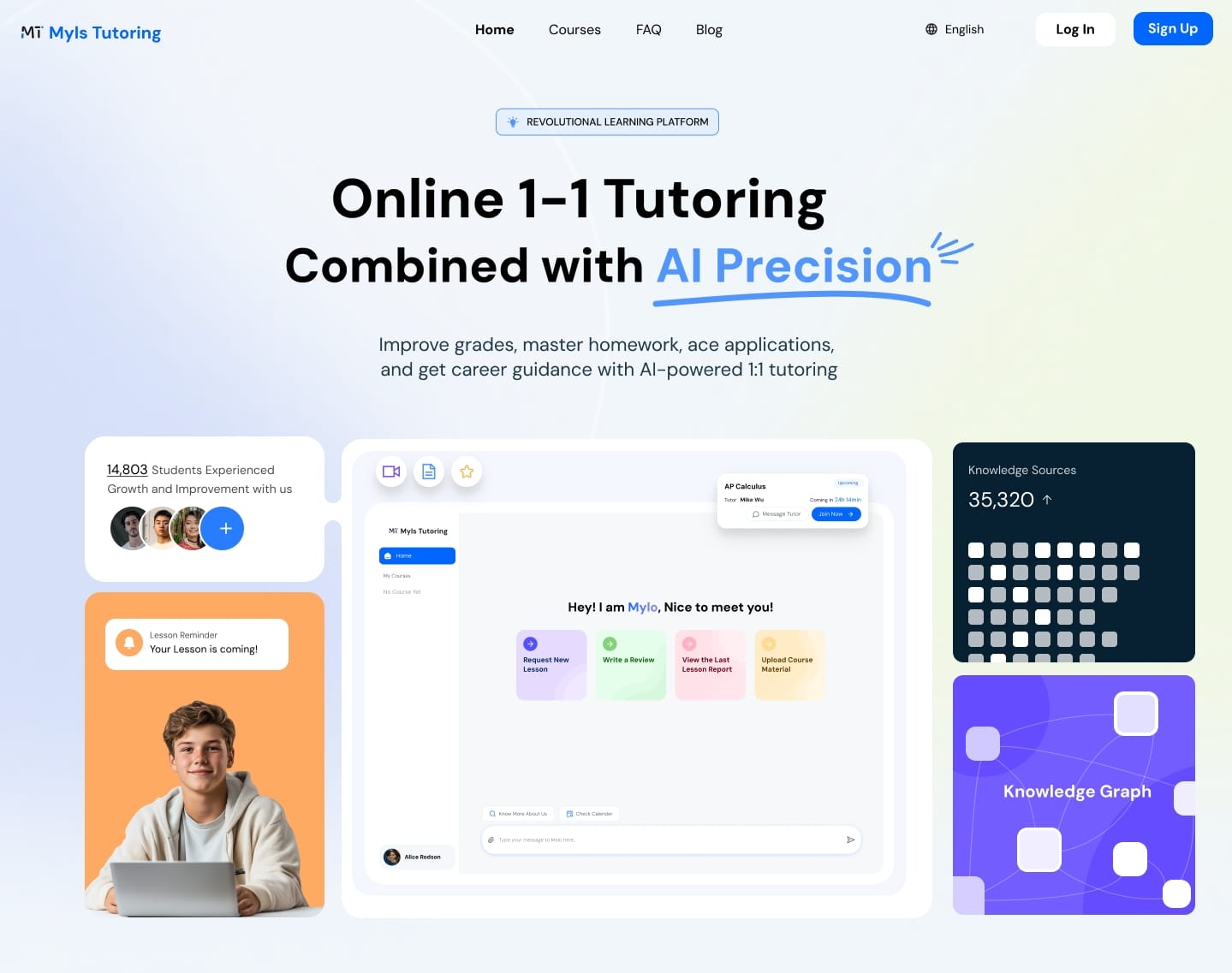When to Find a Tutor: Early Signs Your Child Needs Help
Is your child avoiding homework or slipping in grades? These subtle signs might mean it’s time for a tutor. Learn how early academic support from Myls Tutoring can boost confidence, close skill gaps, and set your child up for long-term success.

Parents often wonder: “Does my child really need a tutor?” It’s a valid question—especially when grades haven’t yet plummeted or a teacher hasn’t raised the alarm. But the reality is that academic challenges often begin subtly. A missed concept here, some confusion there, and soon enough, your child may feel lost in the classroom without knowing how to ask for help.
The good news? Early intervention through tutoring can turn things around quickly. Instead of waiting for a report card shock or an emotional meltdown, recognizing the early signs your child is struggling—and taking action—can make all the difference.
Here are the key indicators to watch for, along with expert insight into when hiring a tutor is the right move.
1. A Drop in Confidence or Motivation
One of the earliest and most overlooked signs is a change in your child’s attitude toward school. Do they say things like “I’m just not good at math” or “This subject is too hard”? Are they less excited about learning or reluctant to start homework?
This drop in motivation is often tied to academic frustration. When students feel unsuccessful repeatedly, they begin to disengage from learning altogether. A tutor can help rebuild confidence by working at the child’s pace, clarifying misunderstood concepts, and celebrating small wins—turning “I can’t” into “I’m getting it.”
2. Homework Becomes a Daily Battle
If homework time is filled with tears, avoidance, or power struggles, it could be more than procrastination—it may signal that your child is overwhelmed. They might not understand the instructions, lack foundational skills, or feel anxious about making mistakes.
Rather than letting homework become a nightly stressor, a tutor can act as a calm guide, helping your child approach tasks more independently and with less resistance.
3. Teacher Feedback Flags a Problem
While some teachers may wait for major signs of failure to recommend tutoring, others will share subtle clues:
- “Your child needs to review this concept.”
- “Participation has declined lately.”
- “They’re struggling to keep up with assignments.”
These comments suggest a learning gap that’s growing. Don’t wait for things to worsen—proactive support can prevent your child from falling further behind.
4. Sudden Changes in Grades or Test Performance
Even high-achieving students can hit rough patches. A dip in grades—especially in a subject they previously did well in—might mean your child has missed a key concept or is struggling to adjust to more complex material.
Tutoring can help reinforce understanding, fill in those gaps, and keep learning on track.
5. Poor Study or Organizational Skills
Does your child constantly forget homework, lose track of deadlines, or cram for every test at the last minute? These are signs of weak executive functioning skills, which are essential for academic success.
Studies show that students with strong organizational skills tend to perform better and experience less stress in school (Meltzer, 2010). Tutors can help students learn how to plan, prioritize, take notes, and prepare for tests—skills that benefit them across all subjects.
6. Struggles with Reading Comprehension or Writing
If your child reads fluently but can’t explain what they’ve read, or they freeze up when asked to write an essay, they may need targeted support in language skills.
Strong reading and writing abilities are foundational for learning in every subject. Tutoring can strengthen comprehension, teach structure, and help your child find their voice as a writer.
7. Preparing for a Transition or Challenge
Sometimes tutoring isn’t about catching up—it’s about getting ahead. If your child is:
- Moving to a new school or curriculum (e.g., AP or IB programs),
- Preparing for standardized tests (e.g., SSAT, SAT, ACT),
- Applying to a competitive high school or university,
…then tutoring can provide the guidance, skills, and confidence to face the challenge successfully.
Tutors can work through practice tests, refine application essays, or teach specific subject content needed for success in new academic environments.
How Myls Tutoring Supports Students at Every Stage

At Myls Tutoring, we believe every student deserves the opportunity to thrive—and that starts with recognizing when support is needed.
Whether your child is falling behind, stuck in a rut, or ready to be challenged, Myls Tutoring provides expert one-on-one tutoring that’s flexible, affordable, and customized to their needs.
✅ Smart Tutor Matching Platform: Our AI-driven matching system pairs students with tutors who understand their subject and learning style—whether it’s math, science, writing, or exam prep.
✅ Personalized Learning Plans: We assess each student’s current strengths and challenges, then build a custom plan to close gaps, reinforce skills, and build momentum.
✅ Flexible Online Tutoring Sessions: With virtual sessions that work around your schedule, your child can receive support from home—no driving, no rigid center hours.
✅ Real-Time Feedback and Progress Tracking: Our online tutors provide instant feedback and use data-driven tools to help you track your child’s growth every step of the way.
✅ Trial Lesson: Not sure where to start? Try a risk-free session and meet your potential tutor before committing.
🎯 Ready to help your child succeed with personalized, expert support?
📘 Book your trial lesson today with Myls Tutoring and take the first step toward building skills—and confidence—that last a lifetime.




